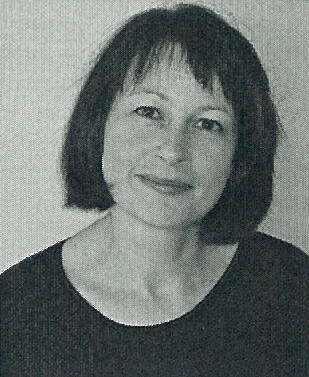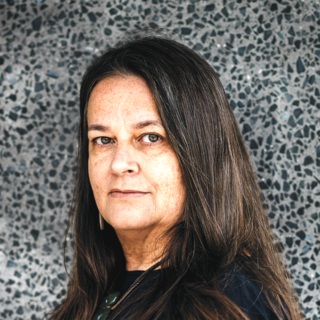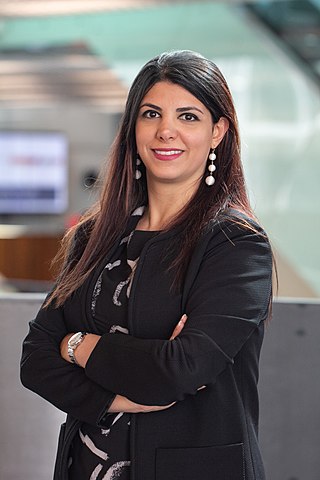
Massey University is a university based in New Zealand, with significant campuses in Auckland, Palmerston North, and Wellington. Massey University has approximately 27,533 students, 18,358 of whom study either partly or fully by distance. Research is undertaken on all three campuses and people from over 130 countries study at the university. Data from the 2017 annual report shows that 42% of the domestic students are based in Auckland, 38% in Palmerston North and 20% in Wellington.

Sir Ernest Marsden was an English-New Zealand physicist. He is recognised internationally for his contributions to science while working under Ernest Rutherford, which led to the discovery of new theories on the structure of the atom. In Marsden's later work in New Zealand, he became a significant member of the scientific community, while maintaining close links to the United Kingdom.

The Royal Society Te Apārangi is a not-for-profit body in New Zealand providing funding and policy advice in the fields of sciences and the humanities. These fundings are provided on behalf of the New Zealand Ministry of Business, Innovation and Employment.

Dame Juliet Ann Gerrard is a New Zealand biochemistry academic. She is a professor at the University of Auckland and the New Zealand Prime Minister's Chief Science Advisor.
Claudia Geiringer is a New Zealand professor of law. In 2022 she was elected a Fellow of the Royal Society Te Apārangi.
Miriam Meyerhoff, is a New Zealand sociolinguist and academic. In 2020, she was appointed a senior research fellow at All Souls College, Oxford. In 2024 she was elected a Fellow of the British Academy.

Barbara Ruth Holland is a New Zealand born Australian scientist. She is a Professor of mathematics and member of the Theoretical Phylogenetics Group at the School of Mathematics & Physics at the University of Tasmania. Holland is also a Chief Investigator at the ARC Centre of Excellence for Plant Success in Nature and Agriculture. She has made substantial contributions to the methods for reconstructing phylogenetic trees from DNA and protein sequence data. Holland has published over 50 journal articles, presented over 30 invited or keynote lectures, refereed five conference proceedings, 2 book chapters and 1 book review. She is a senior editor of the scientific journal Molecular Biology and Evolution.

Charlotte Jean Macdonald is a New Zealand historian. After studying as an undergraduate at Massey University, she earned her PhD from University of Auckland and is now a professor at Victoria University of Wellington.

Gaven John MartinFRSNZFASLFAMS is a New Zealand mathematician. He is a Distinguished Professor of Mathematics at Massey University, the head of the New Zealand Institute for Advanced Study, the former president of the New Zealand Mathematical Society, and former editor-in-chief of the New Zealand Journal of Mathematics. He is a former Vice-President of the Royal Society of New Zealand [Mathematical, Physical Sciences Engineering and Technology. His research concerns quasiconformal mappings, regularity theory for partial differential equations, and connections between the theory of discrete groups and low-dimensional topology.

Antonia Catherine Lyons is a critical health psychologist and academic at the University of Auckland.
Deborah Lucy Hay is a New Zealand academic. In 2022, she was elected a Fellow of the Royal Society Te Apārangi.
Gillian Dianne Lewis is a New Zealand microbiologist. She is a full professor at the University of Auckland and on the board of Crown Research Institute NIWA.

Helen Moewaka Barnes is a New Zealand academic. She is Māori, of Te Kapotai (Ngāpuhi) and Ngapuhi-nui-tonu descent, and is currently a full professor at Massey University. In 2021 she was elected as a Fellow of the Royal Society Te Apārangi.
Marsden Fund grants are contestable funding for investigator-led fundamental research in New Zealand. Grants are made in all areas of research in science, engineering, mathematics, the social sciences and the humanities. The grants are made from the Marsden Fund, which was established by the New Zealand Government in 1994. The Marsden Fund is administered by the Royal Society of New Zealand. Most of the grants go to researchers at New Zealand universities, but some go to researchers at Crown Research Institutes and elsewhere.
Denise Lucy Wilson is a New Zealand health academic. She is currently a full professor of Māori health at the Auckland University of Technology. She is a fellow of the Royal Society Te Apārangi.
Jarrod McKenzie Haar is a New Zealand organisational psychology academic, are Māori, of Ngati Maniapoto and Ngati Mahuta descent and as of 2019 is a full professor at the Auckland University of Technology. He is a Fellow of the Royal Society Te Apārangi.

Mahsa Mohaghegh (McCauley) is an Iranian-born New Zealand computer engineer specialising in artificial intelligence and natural language processing. She is a professor of information technology and software engineering at Auckland University of Technology.

Ruggiero Lovreglio is an Italian academic based in Auckland, New Zealand. He is an associate professor at Massey University and a Rutherford Discovery Fellow for Royal Society Te Apārangi. His research is focused on large-scale and small-scale evacuation dynamics and safety training using emerging technologies, such as virtual reality and augmented reality.

Christine M. Kenney is a New Zealand sociologist, and is a Distinguished Professor of Disaster Risk Reduction at Massey University. She is the first Māori woman to lead a UN international science caucus. In 2024 Kenney was elected to the Council of the Royal Society Te Apārangi.
Yun Sing Koh is a New Zealand computer science academic, and is a full professor at the University of Auckland, specialising in machine learning and artificial intelligence. She is a co-director of the Centre of Machine Learning for Social Good, and the Advanced Machine Learning and Data Analytics Research (MARS) Lab at Auckland.












